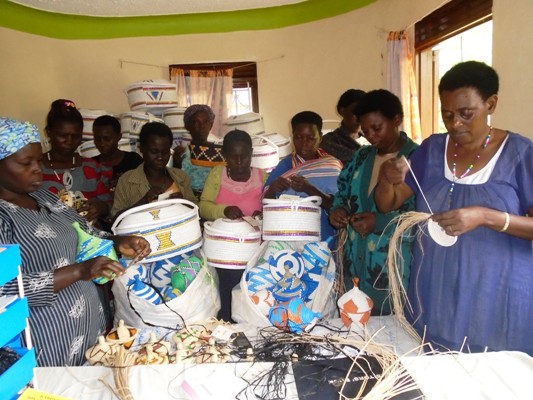Uganda’s import substitution strategy is increasingly paying off as more goods formerly imported are being manufactured locally.
According to the Uganda Revenue Authority (URA) Commissioner General, Doris Akol, import substitution contributed to Shs697.38 billion revenue shortfall in the first half of 2019/20FY.
Out of the projected figure of Shs9.739 trillion, URA managed to collect a net revenue of Shs9.042 trillion during the period July to December 2019 and posted a growth in revenue of 11.15 percent in comparison to the same period in the FY 2018/19.
“In real terms, this reflects a growth in revenue of Shs907.05 billion,” Akol said.
Talking about the impact of import subsistution of international revenue collection, Akol said: “Many previously imported items in various sectors are currently being manufactured in the country like; tiles, steel products, cement, tile adhesives, cables, motor cycle tyres, household appliances e.g. flat irons, speakers, soap and detergents, cooking oil, biscuits, sugar, juices, cosmetics, among others. This has caused a shift in consumer behavior with preference for locally manufactured goods at the expense of imported ones. We have for instance seen foregone revenue from imported tiles of Shs0.156 billion.”
Akol made the remarks Thursday while addressing the press about URA’s half year revenue performance.
She added that there has been an increase in the volume of goods from EAC and COMESA member states by 44.2% at a value of Shs154 billion and the majority of these imported products include; semi-finished gold, sorghum, flavors, pampers, cement clinkers, sugar or industrial for use, sanitary towels, soap and waste & scrap.
“The implementation of EAC & COMESA comes along with foregone revenue in the short run hence affecting collections,” Akol said, adding: “Furthermore, the implementation of the African Continental Free Trade Agreement (AFCFTA) while it opens us up to wider continental market opportunities will lead to an estimated 10% reduction in import duties.”
The URA boss further revealed that the value of dutiable and VATable goods has consistently dropped and currently at 23% of the country’s total imports of these items and less than half pay import duty of 25% and above.

“This is largely attributed to a lot of imports that fall in the exemption category, for example; machinery, raw materials, imports for use in Aid funded projects such as the ongoing infrastructure projects in the works and energy sectors among others. In the first half of the year, the average growth of dutiable imports was at 1.30% while that of VATable goods was at -0.11% therefore affecting international trade tax collections.”






